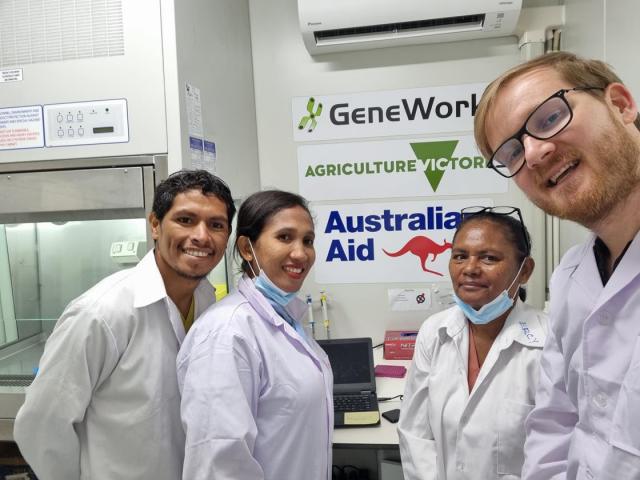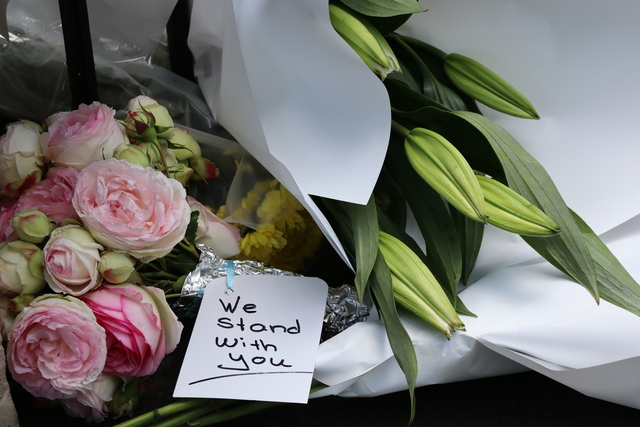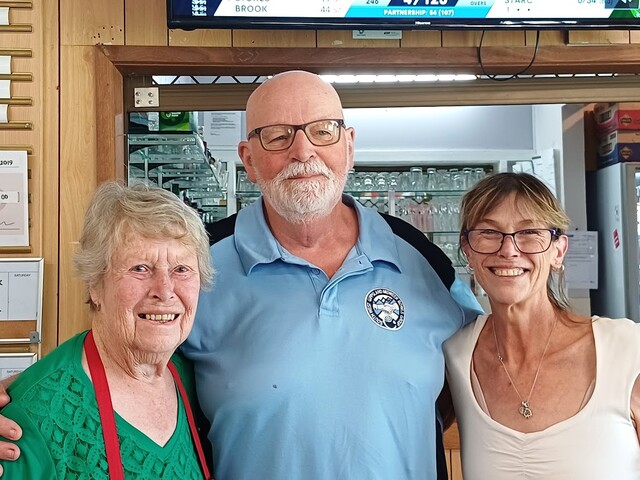A portable molecular lab developed by Agriculture Victoria has opened in Timor-Leste to boost local animal health and help safeguard Australia from exotic animal diseases.
Victorian vets have created an early warning system to help our Timor-Leste neighbours detect major biosecurity threats and build their skills and capacity.
Constructed inside a shipping container, the lab was purpose-built to help deliver veterinary diagnostic services in Timor-Leste, targeting exotic diseases such as African swine fever, classical swine fever, foot-and-mouth disease and lumpy skin disease.
It was built as part of a seven-year project Agriculture Victoria is delivering in partnership with the Timorese Government to strengthen field and laboratory services and provide an early warning system for major biosecurity threats to Victorian agriculture.
At a ceremony to open the lab in Dili recently, Australian Ambassador Bill Costello and Timorese Minister for Agriculture and Fisheries Pedro dos Reis extended a special thank you to Agriculture Victoria researchers Grant Rawlin and Peter Mee, who are training local vets and technicians to use the lab.
This work, which is funded by the Australian Department of Foreign Affairs and Trade, will ensure Timorese vets are better equipped to sample suspect animals and provide a diagnosis before the disease can spread.
Agriculture Victoria research director Brendan Rodoni said the project was also providing a valuable first-hand experience for the Victorian scientists in diagnosing diseases that are not found in Australia.
“Our researchers have the opportunity to test a range of newly developed diagnostic tools on diseases that are exotic to Australia,” he said.
“This helps us to build skills and capacity in exotic disease surveillance and diagnosis so we are better prepared if there was an outbreak in Australia.”
Professor Rawlin and Dr Mee are spending the month in Timor-Leste training local veterinarians on how to use a range of diagnostic tools, including qPCR testing – a real-time method for detecting different microbial agents in animal samples, and LAMP investigations – a highly specific, low cost, fast and portable test for pathogenic viruses.
They will also meet with animal owners and animal health workers and deliver workshops to improve biosecurity practices.
The lab will be a key resource to strengthen field and laboratory services in Timor-Leste and the sharing of knowledge and expertise between Timorese and Australian scientists will ensure both countries are better prepared to protect their animals and industries from biosecurity threats.







